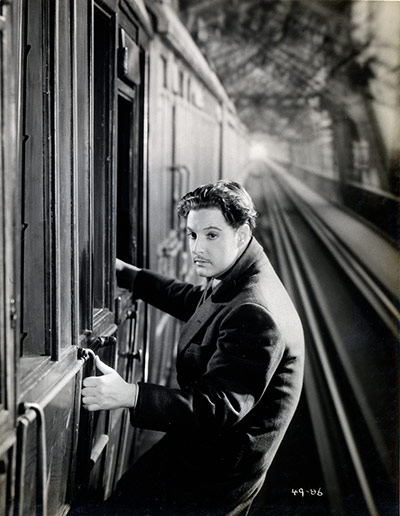If Hitchcock were alive today the title of this post — The Man With No Phone — might be a fitting description of his latest noir, celluloid masterpiece. For in many the notion of being phone-less distills deep nightmarish visions of blood-curdling terror.
Does The Man With No Phone lose track of all reality, family, friends, appointments, status updates, sales records, dinner, grocery list, transportation schedules and news, turning into an empty neurotic shell of a human being? Or, does lack of constant connectivity and elimination of instant, digital gratification lead The Man With No Phone to become a schizoid, feral monster? Let’s read on to find out.
[tube]uWhkbDMISl8[/tube]
Large swathes of the world are still phone-less, and much of the global population — at least those of us over the age of 35 — grew up smartphone-less and even cellphone-less. So, it’s rather disconcerting to read Steve Hilton’s story; he’s been phone-less for 3 years now. However, it’s not disconcerting that he’s without a phone — I find it inspiring (and normal), it’s disconcerting that many people are wondering how on earth he can live without one. And, even more perplexing — why would anyone need a digital detox or mindfulness app on their smartphone? Just hide the thing in your junk draw for a week (or more) and breathe out. Long live The Man With No Phone!
From the Guardian:
Before you read on, I want to make one thing clear: I’m not trying to convert you. I’m not trying to lecture you or judge you. Honestly, I’m not. It may come over like that here and there, but believe me, that’s not my intent. In this piece, I’m just trying to … explain.
People who knew me in a previous life as a policy adviser to the British prime minister are mildly surprised that I’m now the co-founder and CEO of a tech startup . And those who know that I’ve barely read a book since school are surprised that I have now actually written one.
But the single thing that no one seems able to believe – the thing that apparently demands explanation – is the fact that I am phone-free. That’s right: I do not own a cellphone; I do not use a cellphone. I do not have a phone. No. Phone. Not even an old-fashioned dumb one. Nothing. You can’t call me unless you use my landline – yes, landline! Can you imagine? At home. Or call someone else that I happen to be with (more on that later).
When people discover this fact about my life, they could not be more surprised than if I had let slip that I was actually born with a chicken’s brain. “But how do you live?” they cry. And then: “How does your wife feel about it?” More on that too, later.
As awareness has grown about my phone-free status (and its longevity: this is no passing fad, people – I haven’t had a phone for over three years), I have received numerous requests to “tell my story”. People seem to be genuinely interested in how someone living and working in the heart of the most tech-obsessed corner of the planet, Silicon Valley, can possibly exist on a day-to-day basis without a smartphone.
So here we go. Look, I know it’s not exactly Caitlyn Jenner, but still: here I am, and here’s my story.
In the spring of 2012, I moved to the San Francisco bay area with my wife and two young sons. Rachel was then a senior executive at Google, which involved a punishing schedule to take account of the eight-hour time difference. I had completed two years at 10 Downing Street as senior adviser to David Cameron – let’s just put it diplomatically and say that I and the government machine had had quite enough of each other. To make both of our lives easier, we moved to California.
I took with me my old phone, which had been paid for by the taxpayer. It was an old Nokia phone – I always hated touch-screens and refused to have a smartphone; neither did I want a BlackBerry or any other device on which the vast, endless torrent of government emails could follow me around. Once we moved to the US my government phone account was of course stopped and telephonically speaking, I was on my own.
I tried to get hold of one of my beloved old Nokia handsets, but they were no longer available. Madly, for a couple of months I used old ones procured through eBay, with a pay-as-you-go plan from a UK provider. The handsets kept breaking and the whole thing cost a fortune. Eventually, I had enough when the charging outlet got blocked by sand after a trip to the beach. “I’m done with this,” I thought, and just left it.
I remember the exact moment when I realized something important had happened. I was on my bike, cycling to Stanford, and it struck me that a week had gone by without my having a phone. And everything was just fine. Better than fine, actually. I felt more relaxed, carefree, happier. Of course a lot of that had to do with moving to California. But this was different. I felt this incredibly strong sense of just thinking about things during the day. Being able to organize those thoughts in my mind. Noticing things.
Read the entire story here.
Video: Hanging on the Telephone, Blondie. Courtesy: EMI Music.


 Alfred Hitchcock was a pioneer of modern cinema. His finely crafted movies introduced audiences to new levels of suspense, sexuality and violence. His work raised cinema to the level of great art.
Alfred Hitchcock was a pioneer of modern cinema. His finely crafted movies introduced audiences to new levels of suspense, sexuality and violence. His work raised cinema to the level of great art.